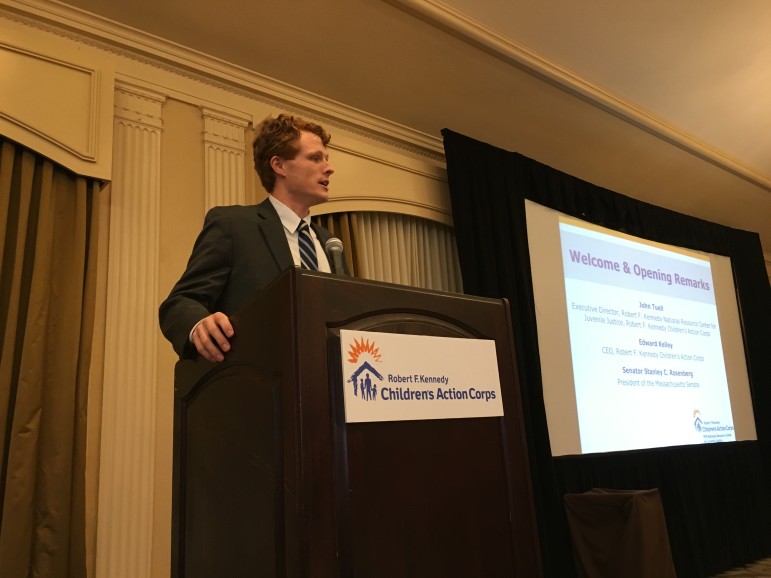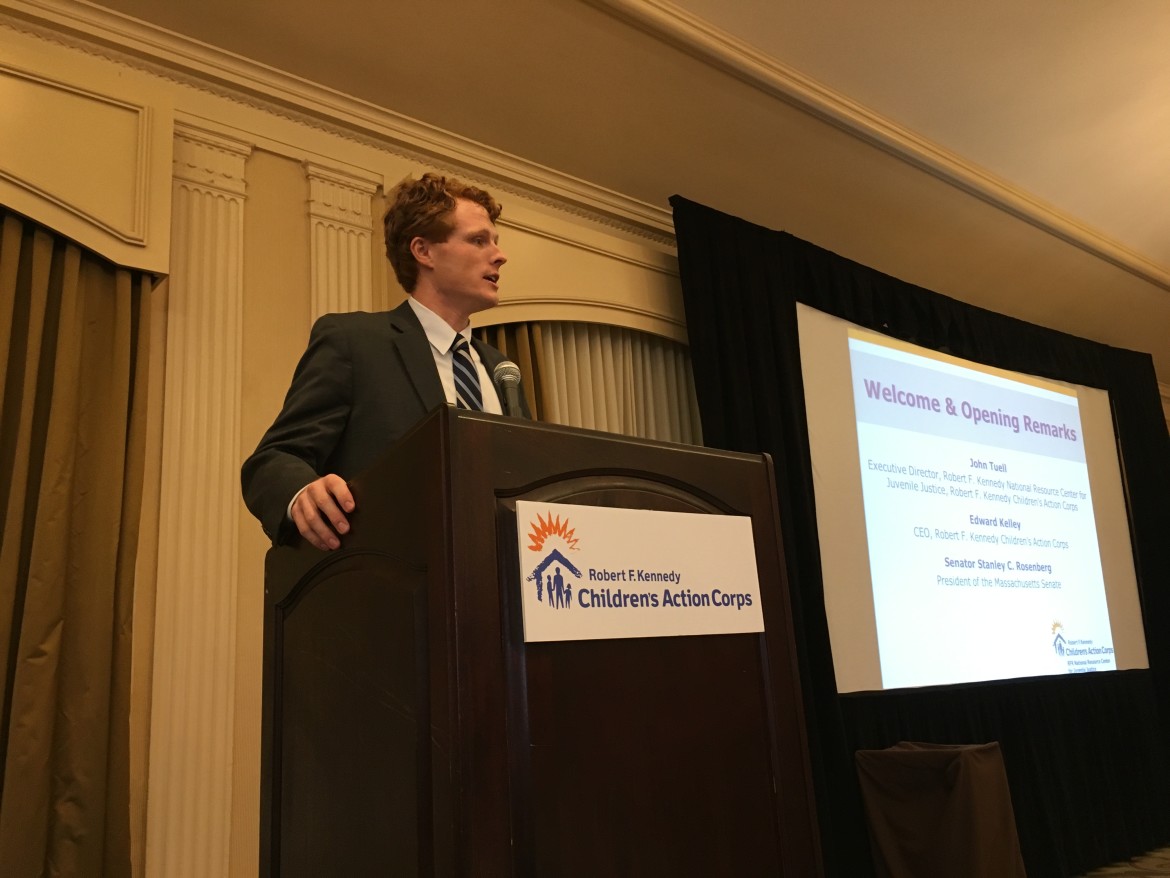
He applauded the 200-plus symposium attendees, many of them people who work with children in the system, for being on the front lines of this movement and putting reforms into place that de-emphasize punishment and throwing children deeper into the system. The juvenile justice system isn't just about cells; it's more about the systems in place after the child has been released, Kennedy said.
The Democratic congressman from Massachusetts talked about how the juvenile justice system is not an illness, but a symptom of the deeper illness of poverty. Far too often the juvenile justice system is "an enemy, not a friend" to the poor, who disproportionately end up in the system in an implacable cycle, he said.
[Related: Advocates Cheer Probe of Racial Bias in Mississippi School Discipline]
He asked the rapt audience to imagine a single mother with a child, leaving prison with a felony drug conviction. She represents two-thirds of women coming out of prison.
 What are her options? She "scrambles to put a roof over her head" but realistically where can she live, Kennedy asked. She tries to go to public housing, but because of restrictions she can't live there as a felon. She tries to find an apartment but background checks keep finding the felony conviction.
What are her options? She "scrambles to put a roof over her head" but realistically where can she live, Kennedy asked. She tries to go to public housing, but because of restrictions she can't live there as a felon. She tries to find an apartment but background checks keep finding the felony conviction.
Say she is lucky enough to move in with her mother, he continued, but when she tries to sign up her daughter and herself for federal programs, she finds the felony drug conviction makes them ineligible for public assistance. That’s the case if she lives in states like Georgia or Arizona.
She lands a job as a waitress, but if she lives in a state like New Jersey she is making two bucks and change as a tip worker, Kennedy said. She is ripped off by her employer but doesn't have the money or resources to get a lawyer to fight for her back pay.
The question he left hanging in the air is what happens to that mother now? What happens to her child?
Eighty percent of the children who end up in the juvenile justice system are from families living in poverty or right on its edge, Kennedy said. Again drawing on the inspiration of his grandfather, he said money should be the last thing that matters in the dispensation of justice, but that often nothing matters more.
"To put a price tag on justice," he said to a standing ovation, "might be to deny it."
More related articles:
Girls in Trouble: Providing the Right Response
Felony Murder Rule Should Not Apply to Juveniles in Illinois

While it is heartening to see the scion of a famous family talking about juvenile justice reform, how is it that so little attention has been paid to this subject in the decades since the a Supreme Court decided that minors deserved the due process of law. The two systems have become more alike in the emphasis on punitive, retributive measures. Ironically, this trend has obscured the need to connect them in a healthier manner for the sake of children and adults and their families.